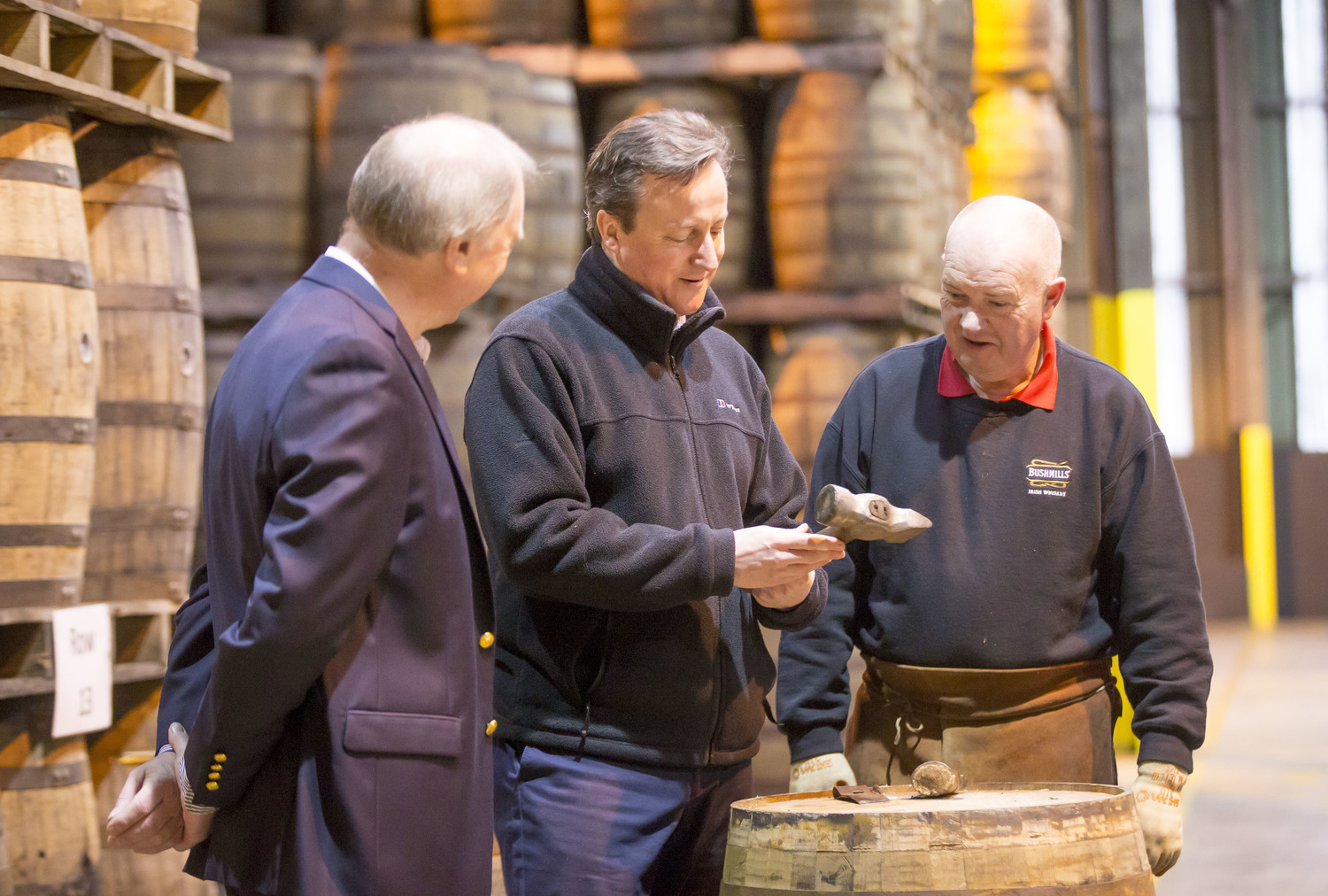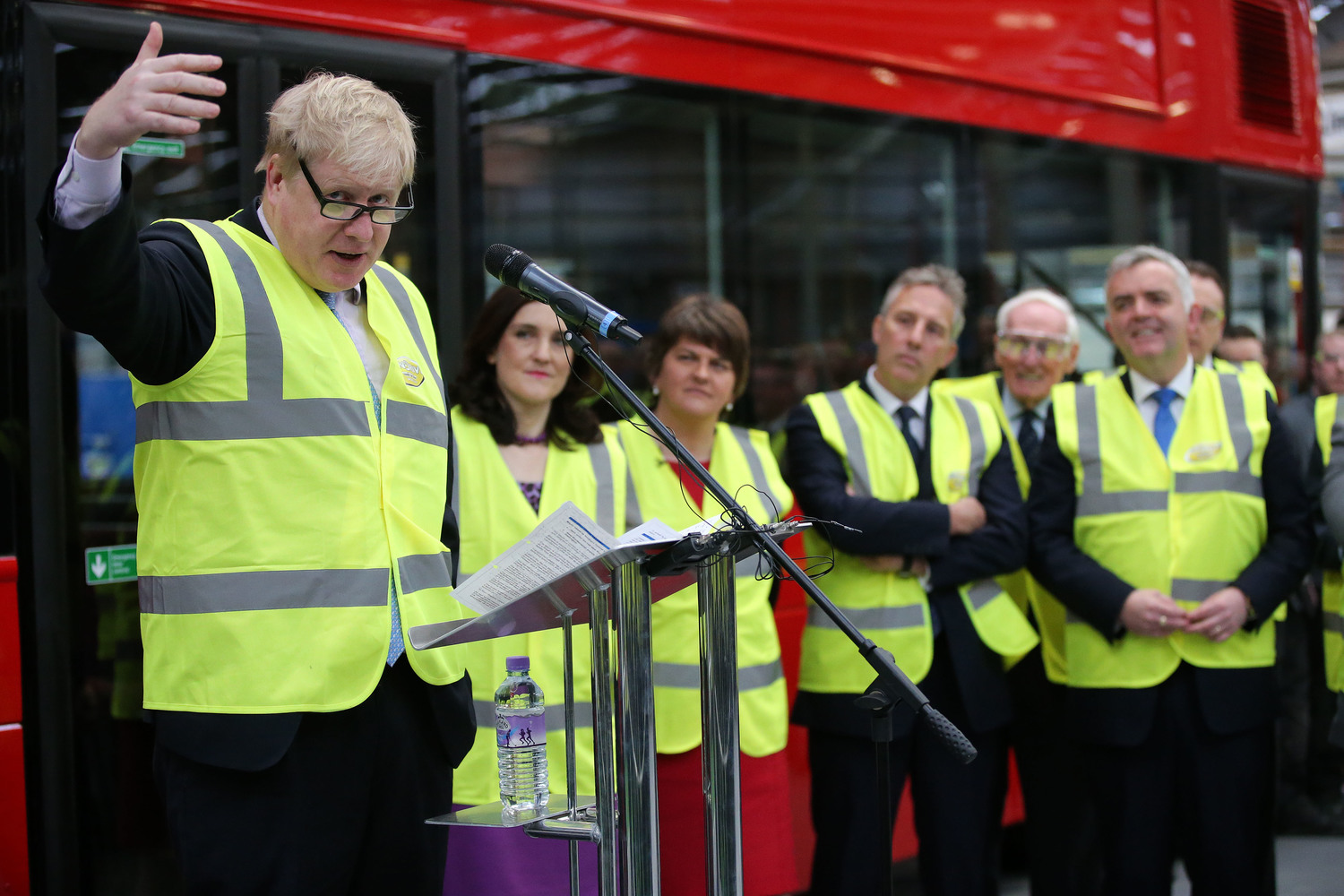AS things stand, the 30,938 people in North Antrim who voted to leave the European Union will see that aspiration become a reality in two months’ time.
North Antrim is the Northern Ireland parliamentary constituency most in favour of exiting Europe with 62.2% of those who voted in the June 2016 referendum supporting leave compared to 44.2% across Northern Ireland as a whole.
The constituency also had a slightly higher percentage of pro-Brexit voters than Blaenau Gwent, statistically the most anti-EU area in Wales, in which 62% backed exiting. Meanwhile, in Moray – the voting area in Scotland most in favour of getting out of Europe – only 49.9% of voters supported leave.
In England, the port town of Dover had the same proportion of leave voters as North Antrim while in Boston, the UK's most pro-Brexit place, 75.6% of voters backed the leave campaign.
It may be more than three years since the European referendum, but for many in the North Antrim constituency – the DUP’s heartland – that desire to leave has not diminished despite the increased likelihood of a no-deal departure on October 31. Yesterday the Queen consented to the UK Government's request to suspend Parliament next month.
In a 2019 UK-wide online petition calling for Article 50 to be revoked, North Antrim was the constituency in Northern Ireland which had the fewest number of signatories.
“They voted to leave. It wasn’t as if we will half leave, we will partly leave, we will leave bits of it. It was very clear, we wished to leave the EU, every aspect of it,” North Antrim’s MP Ian Paisley Jnr told The Detail.
But why did almost two-thirds of voters in this rural Northern Irish constituency support Brexit?
In its entire history, North Antrim has only ever been represented at Westminster by unionist MPs and, from 1970 onwards, the seat has been held exclusively by members of the Paisley family.
As the founder of both the Free Presbyterian Church and the Democratic Unionist Party (DUP), the late Ian Paisley’s fire and brimstone language translated seamlessly from the pulpit to politics.
His forceful opposition to the civil rights movement and republicanism in the 1960s represented a fresh, defiant style of unionism that threatened the Tory-affiliated brand – the sect that, since the creation of the Northern Irish state in 1921, had dominated the country's politics in every practical sense.
Reverend Paisley first ran for the UK Parliament in 1970, winning 41.2% of the vote in North Antrim. When Ian Paisley Jnr took over the reins from his father in 2010, he won 46.4% of the votes in the parliamentary constituency.
His percentage share dropped marginally to 43.2% at the 2015 general election, just over a year before the Brexit vote.
However, at the 2017 Westminster election – a year after the European referendum – Mr Paisley’s share of the vote rose to 58.9%.
The success of the DUP in the 2017 general election – when it won 10 parliamentary seats – put the pro-Brexit party in a position to establish a Confidence and Supply Agreement with the Conservative Party which, under Theresa May's leadership, needed the DUP’s support in order to establish a working majority in the House of Commons.
In return for enabling Theresa May to form a government, the deal secured an additional £1bn for Northern Ireland to be spent over the course of five years. This resulted in the development of an intimate working relationship between the Tories and the DUP, further bolstered by the need to deal with the fallout from Brexit.
Boris Johnson attended the DUP’s 2018 party conference and in July 2019, soon after he became Prime Minister, he held a private dinner with senior figures in the party. Meanwhile, leading Tory Brexiteer Jacob Rees-Mogg attended a fundraising event for the DUP in early 2019 at the Tullyglass Hotel in Ballymena, the town where Ian Paisley's constituency office is located.

Former Prime Minister David Cameron visiting the Old Bushmills Distillery in North Antrim in February 2016, four months before the Brexit referendum. Picture - Press Eye.
North Antrim is home to notable places such as the award-winning floral village of Broughshane and the Old Bushmills Distillery.
Rathlin, Northern Ireland’s only inhabited island, is also located in North Antrim. Scotland is only 15 miles away from the island, making the constituency geographically closer to Great Britain than it is to the Irish border.
In Ballymena, where according to the 2011 census almost 66% of the population identify as Protestant, territory is marked out with Union Jacks, loyalist paramilitary murals and flags in support of Soldier F.
There are also republican areas in Ballymena where posters commemorating the 1981 hunger strikers can be found on display. Such imagery isn’t unique to any one region in Northern Ireland where often symbols and identity dominate the landscape.

 By
By







